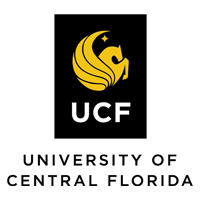
The Rising Cost of College Books
As if college tuition isn’t expensive enough, students still need to pay for books and supplies. Those costs are included in the Cost of Attendance (COA). The COA at your student’s school can easily be found (but we are giving it to you here).
Books average around $1000 annually (These figures are averages and will vary from student to student and university to university.They are indirect costs not billed by the university). Now that students are getting ready to return to school, the reality begins. The whole reason they are at college is to learn and take classes, meaning they will need to have the necessary tools to do so, including books. Textbooks can be very expensive, so it is important to make informed decisions when picking out books to buy or rent.
HaveUHeard that Florida law now requires instructors to post course textbook information prior to the start of each term, giving students the time needed to locate and purchase their books at the lowest price?
HaveUHeard that some colleges do offer free textbooks? The Open-Source textbook movement has become more crucial than ever before. Many universities are members of the Open Textbook Network (OTN), an alliance of higher education institutions working to improve access, affordability, and academic success using open textbooks. Hundreds of open textbooks are available through the network’s online library that can be downloaded for no cost or printed at a low cost.
More Books
There are many Open Educational Resource initiatives that are working on making college textbooks more affordable. Open textbooks are just one example of an OER. OER’s also include study guides, practice tests, problem sets, exams, videos, and other classroom tools. They include:
The Student Public Interest Research Group (PIRG)’s “…mission is to ensure that every student has access to the high-quality learning materials they need – at little-to-no-cost.” Fortunately, Congress is listening as are the universities.
In the Legislature:
- In 2008, Congress passed the Higher Education Opportunity Act, which banned some of the publisher’s worst practices to rip students off.
- In 2011 and 2012, respectively, Washington and California enacted laws to create a statewide open textbook and educational resource programs.
- In 2013, Senators Durbin and Franken, with Congressmen Miller and Hinojosa, introduced companion bills to create a federal open textbook grant program.
- In 2018, Congress includes $5 million in the federal budget for online education resources.
On-Campus:
- More than 3,000 professors have signed a statement in support of open textbook adoption.
- Dozens of universities like the University of Maryland (College Park) have launched their own campus programs to encourage open textbook use.
- The Student PIRGs have published 15+ research reports documenting the problems and harms with traditional textbooks and why open textbooks are the solution.
- In Florida, a statewide initiative exists which is a statewide repository based on common course codes that all faculty in the Florida state university system have access to low-cost course materials.
Almost all colleges now have some type of program to alleviate the debt and expense burden on students. You can learn more about each specific university below:
There are various other ways to purchase books and many different forms to choose from. From going to the bookstore on campus or purchasing books second-hand online, there are different cost-efficient ways to get all of your students’ required materials. Considering that textbooks can cost as much as a few hundred dollars each, it is smart to check out all of your purchasing options for each book.
- Comparison shop – Students today have more choices than ever to get the textbook they need. They should shop around if they are not purchasing from students at their school or at their college bookstore (college bookstores will typically price match so having competitive prices will help them out)
- Rent textbook and course materials- there are many online platforms that offer this service.
- Consider purchasing used books either from other students or from online websites. They will need to make certain that the used book has the same material they need for class.
- Consider using a digital version.
Check with your college about programs for students who cannot afford textbooks. Pass on these great tips, tell your friends and like us on Facebook, Instagram, Twitter, and Pinterest. Find out more about how to use HaveUHeard as a great resource. Sign up for other great tips at haveuheard.com.



















Leave A Comment